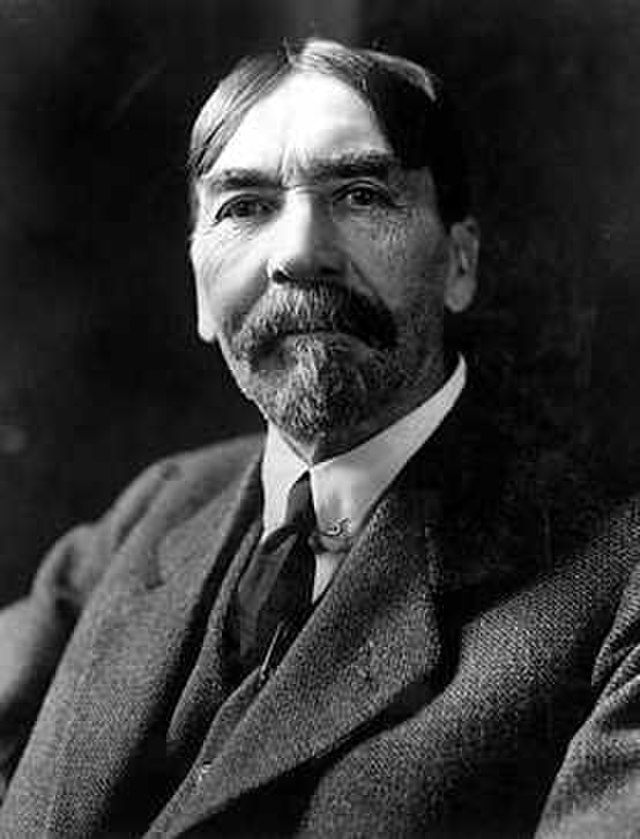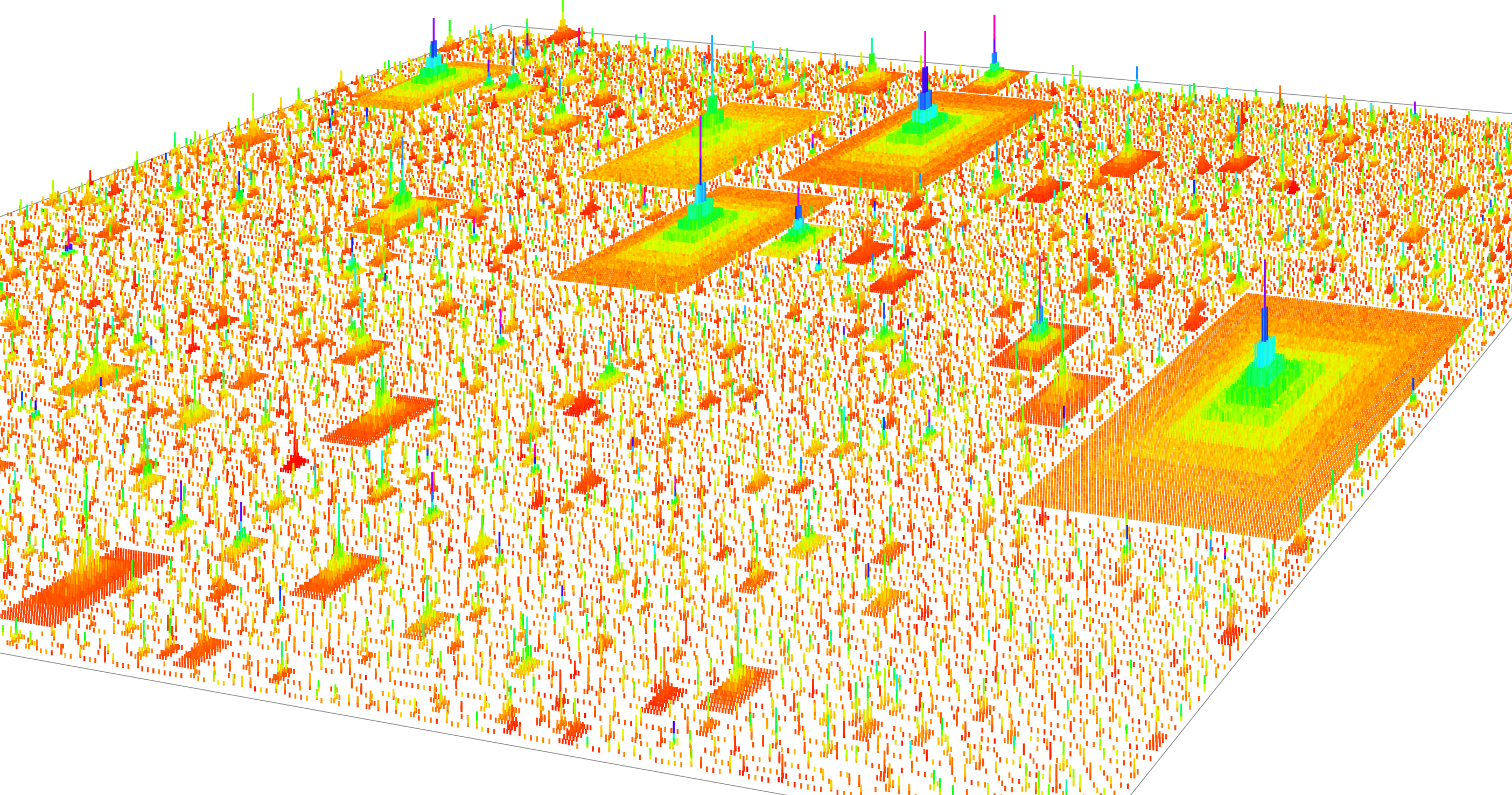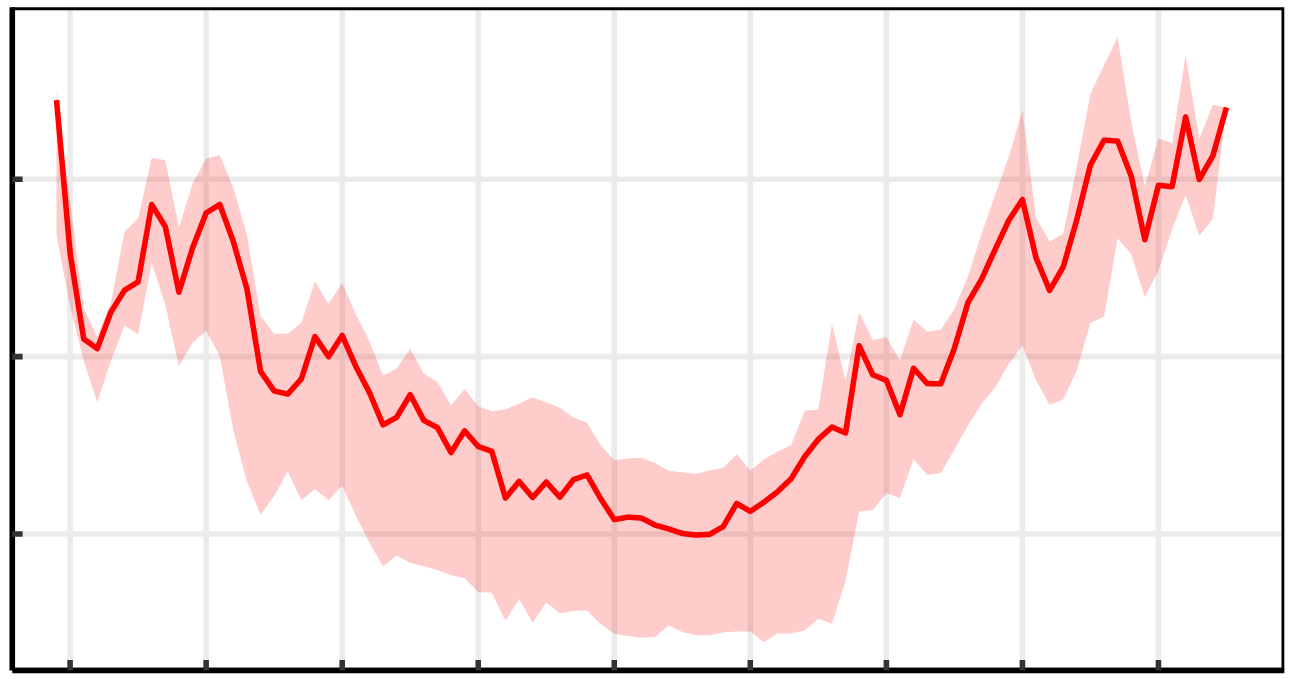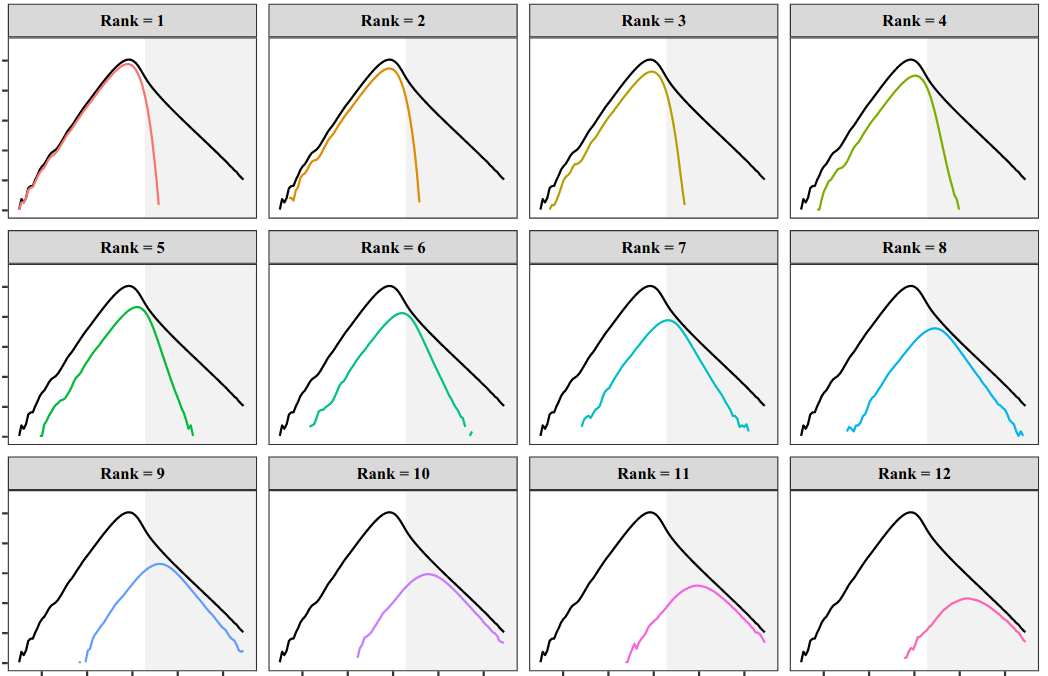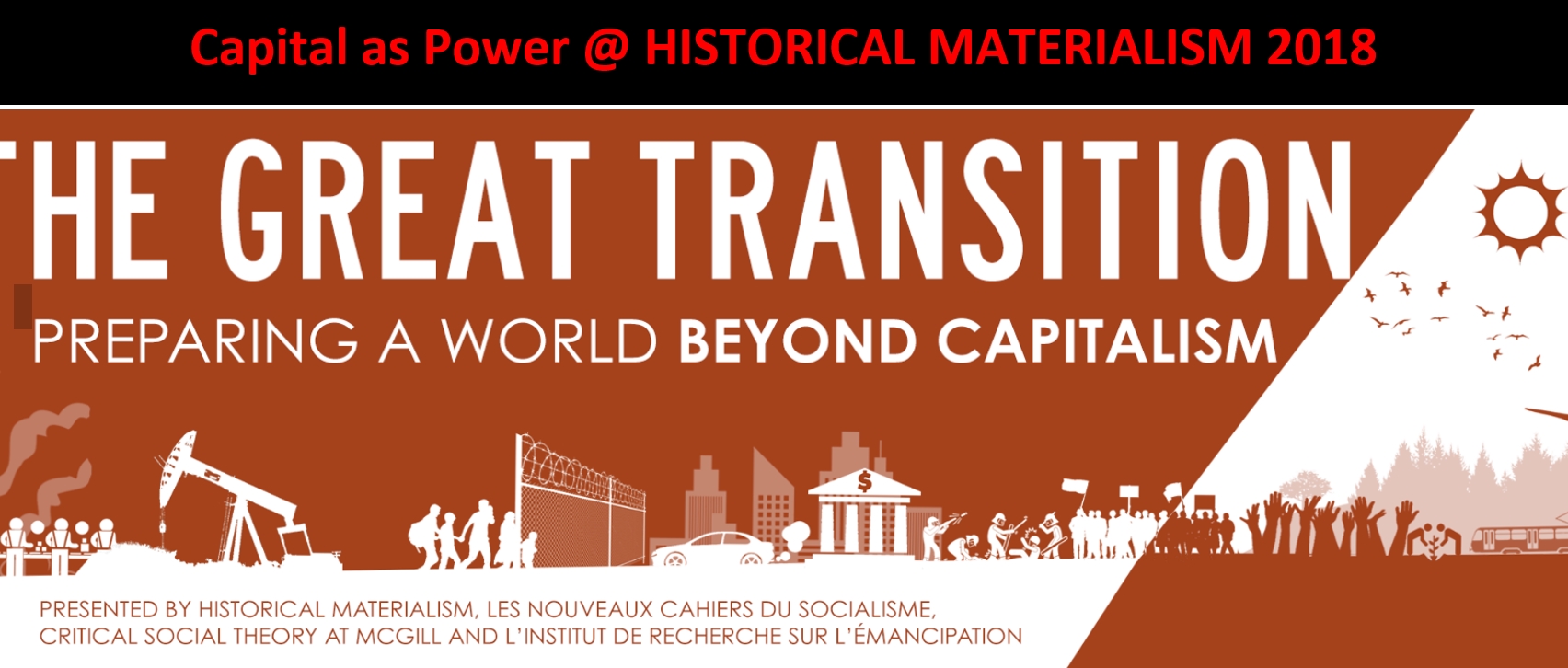Abstract Where should we look to understand the origin of inequality? Most research focuses on three windows of evidence: (1) the archaeological record; (2) existing traditional societies; and (3) the historical record. I propose a fourth window of evidence — modern society itself. I hypothesize that we can infer the origin of inequality from the […]
Continue ReadingBichler & Nitzan, ‘Arms and Oil in the Middle East: A Biography of Research’
Abstract This essay interweaves two stories—one theoretical and empirical, the other autobiographical. The first story embeds the Israeli-Palestinian conflict in the broader political economy of the Middle East and the global accumulation of “capital as power.” The second story narrates the authors’ personal journey to uncover, theorize, and research this enfoldment. The essay explores and […]
Continue Reading2018/08: Bichler & Nitzan, ‘CasP’s Differential Accumulation versus Veblen’s Differential Advantage’
Abstract This paper clarifies a common misrepresentation of our theory of capital as power, or CasP. Many observers tend to box CasP as an ‘institutionalist’ theory, tracing its central process of ‘differential accumulation’ to Thorstein Veblen’s notion of ‘differential advantage’. This view, we argue, betrays a misunderstanding of CasP, Veblen or both. As we show, […]
Continue ReadingPropertization: The Process by which Financial Corporate Power has Risen and Collapsed
Propertization The Process by which Financial Corporate Power has Risen and Collapsed JONGCHUL KIM September 2018 Abstract Elsewhere I argue that the legal concept of property was created in the image of money in the late Roman Republic. Since then, the division of property and contract has been an underlying structure of Western law. The […]
Continue ReadingTheory and Praxis, Theory and Practice, Practical Theory
Theory and Praxis, Theory and Practice, Practical Theory CORENTIN DEBAILLEUL, SHIMSHON BICHLER and JONATHAN NITZAN April 2018 Abstract In their paper ‘The CasP Project: Past, Present and Future’, Shimshon Bichler and Jonathan Nitzan invite readers to engage critically with their theoretical framework, known as capital as power (CasP). This call for further research, reactions and […]
Continue ReadingThe CasP Project Past, Present, Future
The CasP Project Past, Present and Future SHIMSHON BICHLER and JONATHAN NITZAN April 2018 Abstract The study of capital as power (CasP) began when we were students in the 1980s and has since expanded into a broader project involving a growing number of researchers and new areas of inquiry. This paper provides a bird’s-eye view […]
Continue ReadingGuillem, ‘Análisis de conflictos y Relaciones Internacionales, una elaboración teórica de Sociología del Poder. Causas de la Guerra del Líbano de 2006’
Abstract SPANISH Si observamos la literatura sobre la Guerra del Líbano del 2006, llama la atención la ausencia de un marco teórico claro en la mayoría de los análisis. Igualmente se perciben notables discrepancias en algo tan básico como las causas de la guerra y encontramos destacadas diferencias en la explicación de la conducta de […]
Continue ReadingBichler & Nitzan, ‘With Their Back to the Future: Will Past Earnings Trigger the Next Crisis?’
Abstract As these lines are being written (April 2018), the The U.S. stock market is again in turmoil. After a two-year bull run in which share prices soared by nearly 50 per cent, the market is suddenly dropping. Since the beginning of 2018, it lost nearly 10 per cent of its value, threatening investors with […]
Continue ReadingKim, ‘Propertization: The Process by which Financial Corporate Power has Risen and Collapsed’
Abstract Elsewhere I argue that the legal concept of property was created in the image of money in the late Roman Republic. Since then, the division of property and contract has been an underlying structure of Western law. The paper argues that a main way of structuring financial corporate power, especially money market funds (MMFs), […]
Continue ReadingMcMahon, ‘Is Hollywood a Risky Business? A Political Economic Analysis of Risk and Creativity’
Abstract This paper seeks to explain why Hollywood’s dominant firms are narrowing the scope of creativity in the contemporary period (1980–2015). The largest distributors have sought to prevent the art of filmmaking and its related social relations from becoming financial risks in the pursuit of profit. Major filmed entertainment, my term for the six largest […]
Continue ReadingFrancis’ Updated Buy-to-Build Indicator
Joe Francis The tendency toward buying other companies more than building new productive capacity continues in the United States In a past life I had access to expensive databases of corporate statistics, which I used to calculate the buy-to-build indicator for the United States from the 1880s until 2012. In short, the buy-to-build indicator shows […]
Continue ReadingSharp, ‘Corporate Urbanization: Between the Future and Survival in Lebanon’
Abstract If you look today at the skyline of downtowns throughout the Middle East and beyond, the joint-stock corporation has transformed the urban landscape. The corporation makes itself present through the proliferation of its urban mega-projects, including skyscrapers, downtown developments and gated communities; retail malls and artificial islands; airports and ports; and highways. Built into […]
Continue Reading2018/07: Fix, ‘The Trouble with Human Capital Theory’
Abstract Human capital theory is the dominant approach for understanding personal income distribution. According to this theory, individual income is the result of ‘human capital’. The idea is that human capital makes people more productive, which leads to higher income. But is this really the case? This paper takes a critical look at human capital […]
Continue Reading2018/06: Fix, ‘Capitalist Income and Hierarchical Power: A Gradient Hypothesis’
Abstract This paper offers a new approach to the study of capitalist income. Building on the ‘capital as power’ framework, I propose that capitalists earn their income not from any productive asset, but from the legal right to command a corporate hierarchy. In short, I hypothesize that capitalist income stems from hierarchical power. Based on […]
Continue ReadingFix, ‘Economics from the Top Down: Does Hierarchy Unify Economic Theory?’
Abstract What is the unit of analysis in economics? The prevailing orthodoxy in mainstream economic theory is that the individual is the ‘ultimate’ unit of analysis. The implicit goal of mainstream economics is to root macro-level social structure in the micro-level actions of individuals. But there is a simple problem with this approach: our knowledge […]
Continue ReadingFix, ‘Economics from the Top Down: Does Hierarchy Unify Economic Theory?’
Abstract What is the unit of analysis in economics? The prevailing orthodoxy in mainstream economic theory is that the individual is the ‘ultimate’ unit of analysis. The implicit goal of mainstream economics is to root macro-level social structure in the micro-level actions of individuals. But there is a simple problem with this approach: our knowledge […]
Continue Reading2018/05: Fix, ‘The Growth of US Top Income Inequality: A Hierarchical Redistribution Hypothesis’
Abstract What accounts for the growth of US top income inequality? This paper proposes a hierarchical redistribution hypothesis. The idea is that US firms have systematically redistributed income to the top of the corporate hierarchy. I test this hypothesis using a large scale hierarchy model of the US private sector. My method is to vary […]
Continue ReadingFix, ‘Hierarchy and the power-law income distribution tail’
Abstract What explains the power-law distribution of top incomes? This paper tests the hypothesis that it is firm hierarchy that creates the power-law income distribution tail. Using the available case-study evidence on firm hierarchy, I create the first large-scale simulation of the hierarchical structure of the US private sector. Although not tuned to do so, […]
Continue Reading2018/04: Martin, ‘The Autocatalytic Sprawl of Pseudorational Mastery’
Abstract According to Shimshon Bichler and Jonathan Nitzan capital is not an economic quantity but a mode of power; it could be sumarized as: “Capital is power quantified in monetary terms”. So, what do we do when we “quantify”? What is the nature of “money” in a capitalist society? And, indeed, what is “power” in […]
Continue ReadingCapital as Power @ Historical Materialism 2018: Panel Series at The Great Transition Conference, Montreal, May 17-20, 2018
The Forum on Capital as Power presents a panel series at the Montreal 2018 Great Transition Conference, May 17-20. The panels include the following papers: 1. ‘What is Capital as Power?’ Shimshon Bichler, Israel and Jonathan Nitzan, Canada 2. ‘Capitalization, Capital Goods and the State of Capital: The Boundaries of Accumulation’ DT Cochrane, Ryerson University […]
Continue Reading


